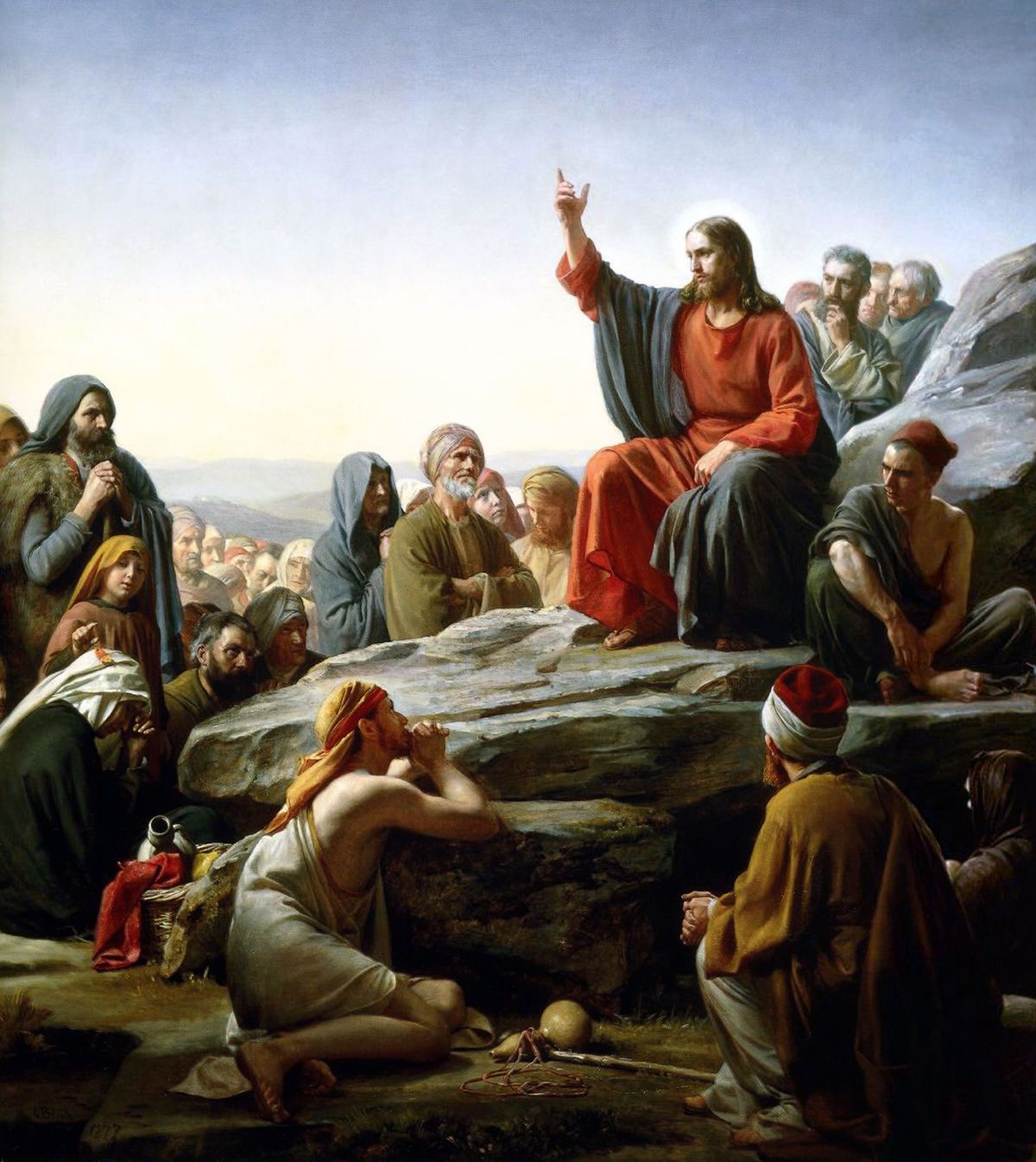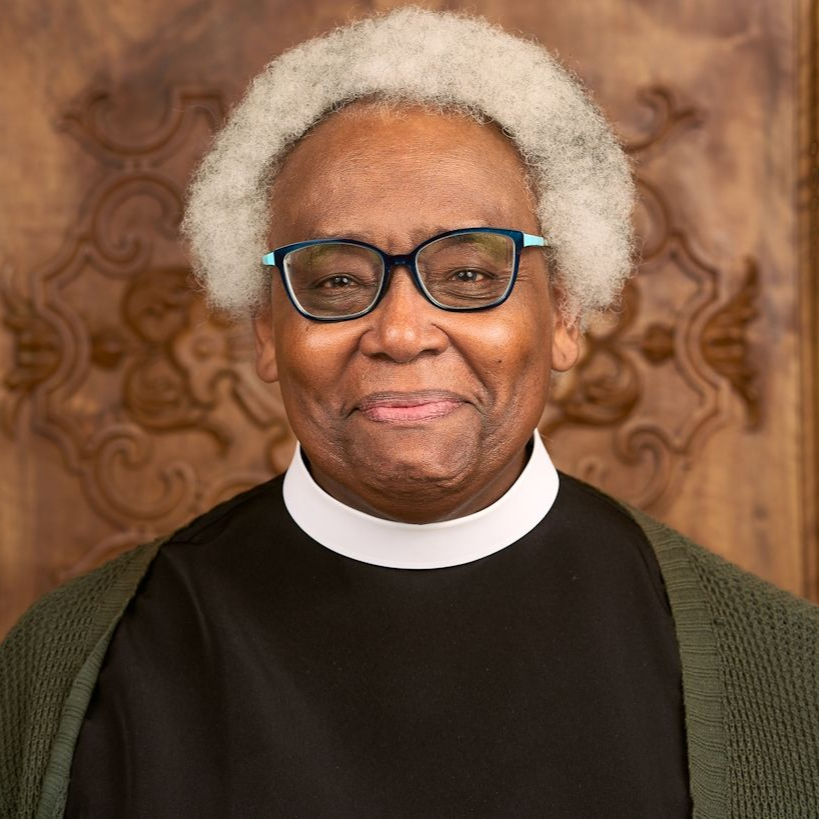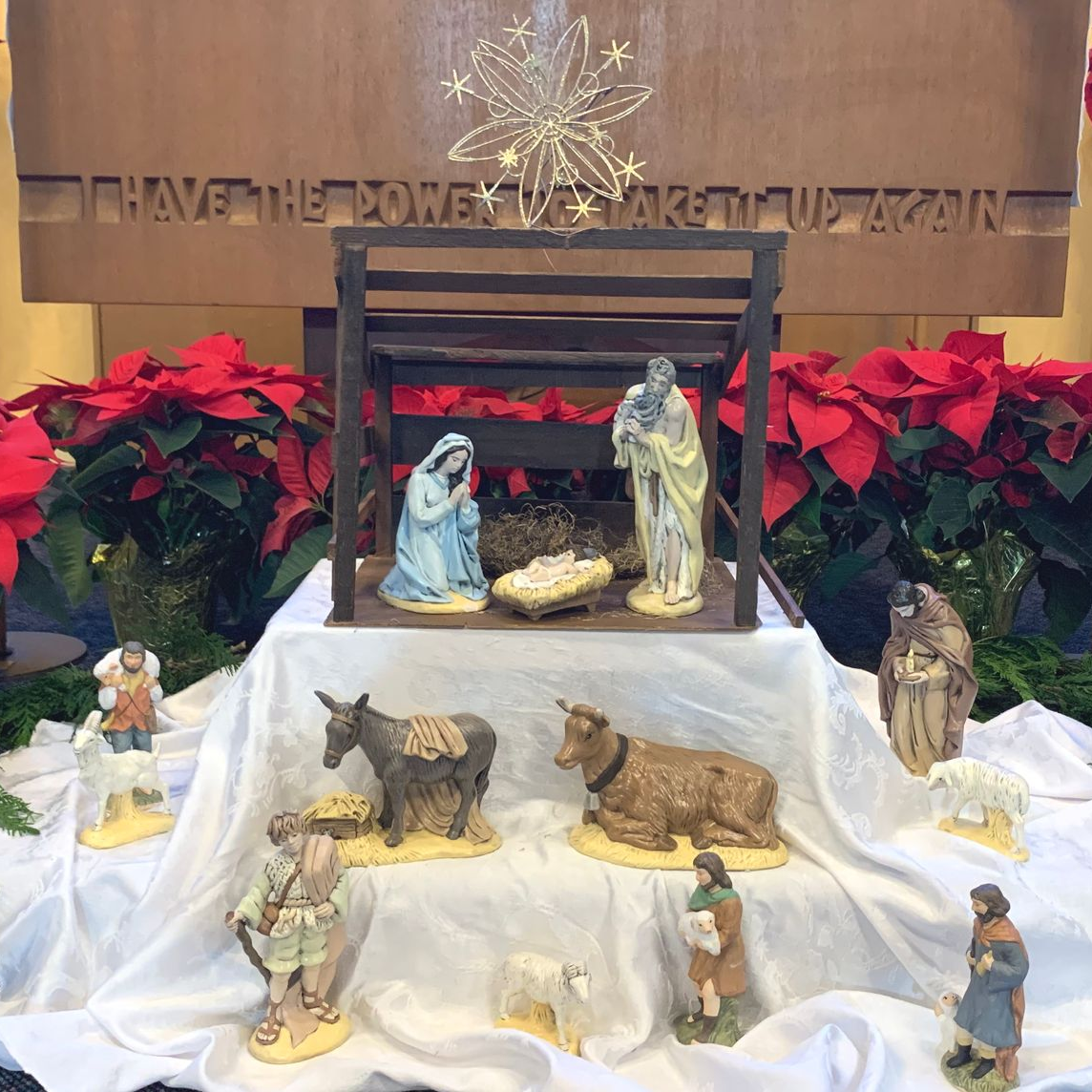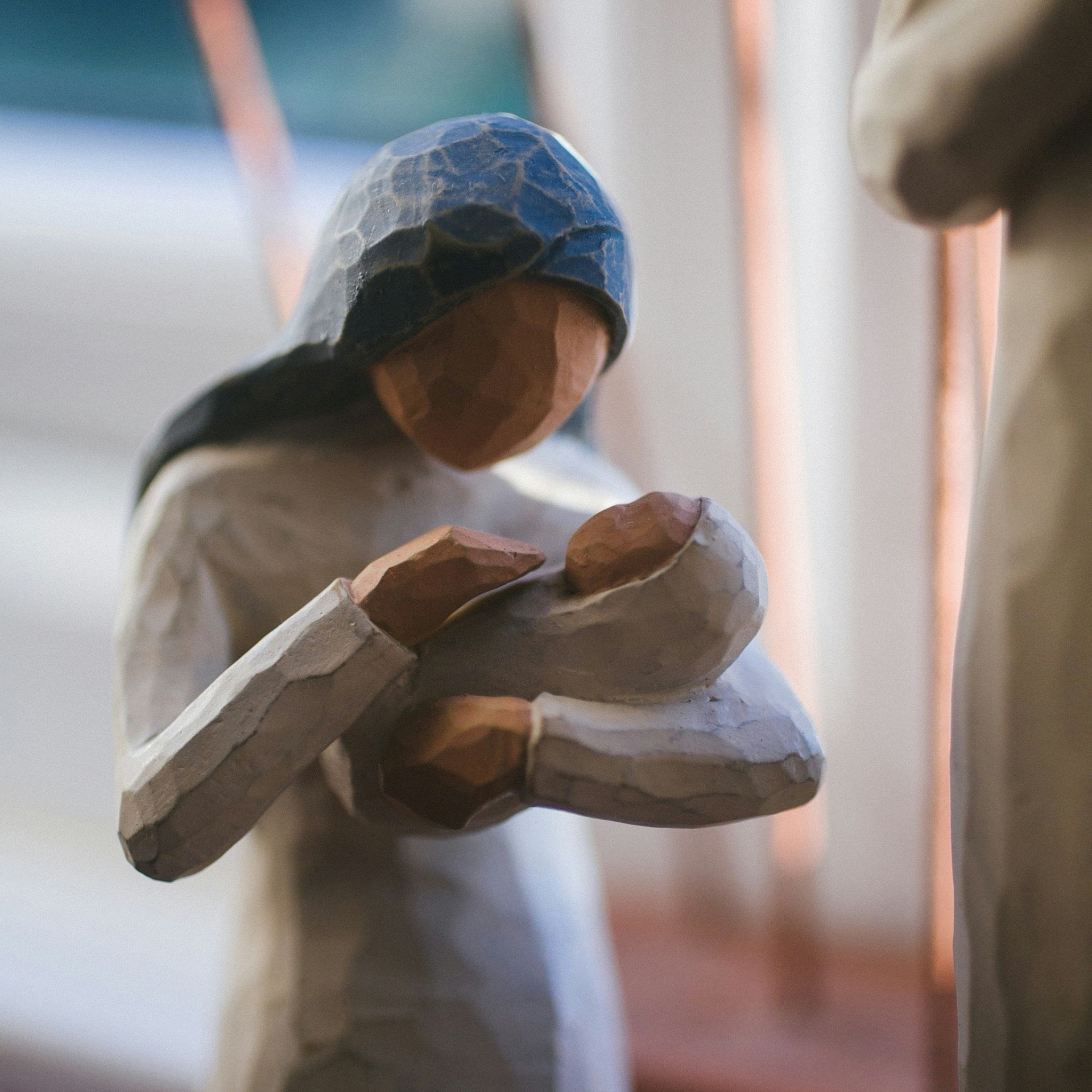Who Radicalized You?
In Christianity, to be "saved" is to be radicalized by God's love.
2025-27
sermon preached at Church of the Good Shepherd, Federal Way, WA
www.goodshepherdfw.org
by the Rev. Josh Hosler, Rector
The Third Sunday of Easter, May 4, 2025
Acts 9:1-6, (7-20) ;
Psalm 30 ;
Revelation 5:11-14 ;
John 21:1-19
There’s a common meme on social media: “Who radicalized you?” It’s usually intended to call out those who think that something everyone should agree is good is somehow on the political fringe. So, for instance, to someone who thinks that helping others is a sign of weakness, I could say that Mr. Rogers radicalized me. To someone who has no problem with our current government illegally ignoring due process and separation of powers so they can persecute certain groups of human beings, I could say that that I was radicalized by … my high school government teacher.
Well, there’s one person who has radicalized me more than any other, and yes, that’s Jesus. Who else did you expect in a sermon? But Jesus isn’t a banal example; I believe that following Jesus is a truly radical act. That is certainly the case in America today: it is radical to actually follow the Way of Jesus instead of merely branding ourselves with him. It is radical to do the loving, daring, potentially dangerous things he told us to do instead of using the words of his ancient apologists to beat up the vulnerable.
Once you’ve been radicalized by Jesus, the whole world looks different. We have just heard two stories of people being radicalized by Jesus. In Christian speak, that’s called “salvation.”
This week I pulled an old book off my shelf: John Macquarrie’s Principles of Christian Theology. Yes, I know, that’s an awfully dry title. It’s not a new book; I have the copy my uncle owned in the 1970s. What is it? Simply put, it’s a downright readable introduction to Christian theology.
In the chapter of Macquarrie’s book called "The Holy Spirit and Salvation," he lays out four stages of being saved: (1) conviction of sin, (2) repentance, (3) divine election, (4) justification and sanctification, which he counts as a single step because they should never be pried loose from one another.
I know, so far this must sound boring and fiddly. Either that, or it’s bringing up nightmarish memories from a church you used to attend. Theological terms can do a lot of damage when Christians toss them around carelessly. If we’re going to use them at all, we need helpful stories on which to hang them. And so we get to today’s two stories of salvation.
The conversion of Saul on the road to Damascus is pretty famous in Christian circles. If it’s new to you, great! Enjoy for the first time the way Luke hits the ground running when he introduces a new scene: “Meanwhile Saul, still breathing threats and murder against the disciples of the Lord, went to the high priest …” Saul is heading to Damascus with an administrative warrant. There he plans to go from house to house arresting followers of The Way: a new, dangerous group who claim that the Messiah has indeed come, has been killed, and has risen from the dead.
Will Saul be able to carry out his plans? Not today!
Now, there’s nothing written here about Saul riding on a donkey. But the way most people imagine it, a light from heaven knocks Saul off his ass. And this is Stage 1 of Saul’s salvation: conviction of sin. “Who are you, Lord?” “I am Jesus, whom you are persecuting!” Can’t get much clearer than that. “Saul, don’t you know that persecuting people is bad? Stop it!”
Stage 2: repentance. Having been struck blind, Saul also fasts from all food and water for three days. Maybe he’s sorry for what he has done. Or at least he’s scared enough to know that he’s in serious trouble here and had better make a good show of it. Sometimes repentance works that way, you know: we say we’re sorry when we’re not really, not yet. But the action itself might well get the ball rolling, with or without internal feelings to go with it. Luke doesn’t tell us what’s in Saul’s heart at this point.
Stage 3: divine election. God tells a follower of The Way named Ananias that the notorious Saul, who is now being given safe harbor while he recovers from his ordeal, “is an instrument whom I have chosen to bring my name before Gentiles and kings and before the people of Israel.” So, yeah—God elects for Saul to take on a special task. That doesn’t mean anyone else is un-elected. It means that God loves Saul in a Saul-shaped way and is sending him on a Saul-shaped mission—which, it turns out, will be incredibly consequential for world history.
Stage 4: justification and sanctification (not to be pried apart!). This new arrangement is as if God told Martin Luther King, Jr. that Bull Conner was now going to lead the civil rights movement. Ananias rightly wonders: “God, how can you choose this horrible person to accomplish your purposes? We can’t trust him. We don’t even know that he’s sorry! Are you just going to let him off scot-free?” The divine response: “I myself will show him how much he must suffer for the sake of my name.” Reconciliation between Saul and Jesus will come, but it won’t happen all at once. The grace of Saul’s salvation will cost him the rest of his life, given in service to others. Through many hardships, Saul will become a holier and holier person. That begins with his baptism … followed by the breaking of his fast.
We also have today a story of the risen Christ appearing to the disciples on the beach, with a spotlight on Peter. Let’s look at Macquarrie’s four stages again.
Stage 1: conviction of sin. Jesus doesn’t need to send a blinding light. Peter knows perfectly well that he escaped arrest by denying three times that he’d ever met Jesus. This was after swearing he would follow Jesus into the very jaws of death! So much for courage.
Stage 2: repentance. Though this is the third time Christ has appeared to his friends since his death, Peter hasn’t really apologized for denying him. Maybe he wonders whether that will be necessary; after all, everything is clearly different now. Yet still Peter harbors this guilt. What will he do with it? First he’ll cannonball off the fishing boat fully clothed and swim to Jesus as fast as he can. Then, when Jesus asks him directly, “Do you love me?,” Peter will say, “Yes, Lord; you know that I love you.” This happens three times—one for each of Peter’s three denials. As with Saul’s fasting, this gentle confrontation is Peter’s repentance.
Stage 3: divine election. In response to each of Peter’s declarations of love, Jesus tells him, with slight variations of phrase: “Feed my lambs … Tend my sheep … Feed my sheep.” Jesus sees Peter in all his uniqueness and loves him and marvels at him. Jesus had already chosen Peter numerous times before dying; now, after his resurrection, he chooses Peter yet again.
Stage 4: justification and sanctification. That threefold exchange with Christ reassures Peter that all is mended. Peter will spend the rest of his life boldly proclaiming Christ as Savior and Lord in place of Caesar Augustus—and he will care for the developing Church built on the rock of his faith. But Christ foretells, “When you grow old, you will stretch out your hands, and someone else will … take you where you do not wish to go.” While Peter’s death is not chronicled in the Bible, ancient legend has it that the Romans crucified him upside-down—at Peter’s own request, because he didn’t feel himself worthy to be crucified in exactly the same manner Jesus was.
All this talk about salvation, and you know what hasn’t come up even once? Heaven!
Isn’t that what churches are always talking about, especially when you see them advertising on billboards and on little pamphlets everywhere? Isn’t it all about following four easy steps to secure yourself a place beyond the pearly gates? I mean, let’s be honest: when people talk about being “saved,” isn’t heaven their primary concern? Maybe even their only concern?
Well, I’m here to tell you … that’s nonsense. Heaven isn’t nonsense. I don’t know what heaven is like, though I do know Jesus came back from it to reassure his friends that all’s well. But people are not saved for heaven. Rather, people who experience the overwhelming reality of God’s love are saved from the hell of living only for themselves. They are saved for a transfomed life in the here and now. I don’t believe this only happens to Christians, either—I believe the Holy Spirit is acting all over the world, and that salvation transforms people for loving service in many different ways all the time. In our Christian context, though, we mark the reality of that salvation with baptism.
We didn’t hear today the story of Zaccheus,[1] the wee little man who climbs a sycamore tree, but I’ll mention him because he’s a good example. Jesus announces Zaccheus’s salvation the moment this rich man commits to give away a huge chunk of his wealth. The purpose is not to buy a place in the hereafter. It’s to practice a new skill that will enable him to have abundant life right here … today … together with others, instead of in opposition to them. How hellish it would be to live all one’s life surrounded by money and always assuming that people are out to take it from you!
A passage also comes to my mind from the Letter of Titus, one of the last pieces of the New Testament to be written: “For the grace of God has appeared, bringing salvation to all (justification), training us to renounce impiety and worldly passions (sanctification), and in the present age to live lives that are self-controlled, upright, and godly.”[2]
Christianity means a transformation of our lives, from self-focused to outward-focused … from fear and hiding to bold proclaiming! Peter is converted. Saul is converted. And yes, hardship comes with it. As I pointed out to somebody this week, “When you’re engaged in ministry in the world, you can expect that a sword will always be piercing your heart.” Because you drew close to people who were experiencing tragedy … and that’s the price of love.
But in the end, I do not believe that we need to worry about heaven. Not today, and not at the end of our lives. Because if God loves us eternally, God will take care of all of that in whatever way is best for our growth in love. In the meantime, once you accept that God’s love for you is eternal and completely unearned, that can free you up to live a life so genuine and generous that some might even call you … radical. Amen.
1] Luke 19:1-10
[2] Titus 2:11-12










